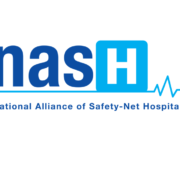Unless Congress intervenes, hospitals will soon begin repaying massive federal loans they received to help them cope with the COVID-19 public health emergency.
The loans, authorized by the federal CARES Act, were made through the Accelerated and Advance Loan Program, and in all, Medicare made nearly $100 billion in such loans to providers. Under the legislation, Medicare was to begin recouping the loans 120 days after hospitals received them, with recoupment coming by Medicare ceasing to pay hospitals’ Medicare claims until the full amount of the loan was repaid.
Now the loans are coming due but hospitals are saying they are not ready to forego all of their Medicare revenue.
While some hospital groups have asked for 100 percent forgiveness for the loans, others are calling for a combination of extending the payback period and reducing the interest rate for those that fail to complete repayment in a timely manner.

… urges you to forgive the federal Medicare revenue advanced to hospitals through the CARES Act’s Accelerated and Advance Payment Program. Because of the unprecedented length and persistence of this public health emergency, we believe many hospitals – especially safety-net hospitals – will never recover the revenue we have lost in recent months. Most of us expect to be able to restore financial equilibrium, but we will not be able to do so if we have this enormous debt hanging over our heads.
Both House Democrats’ HEROES Act and Senate Republicans’ HEALS Act attempt to address the loan situation – albeit in different ways – but neither calls for forgiving the loans entirely.
Learn more about the challenges hospitals face with their obligation to repay Accelerated and Advance Loan Program money and how Congress is looking at that challenge in this Washington Post article.

